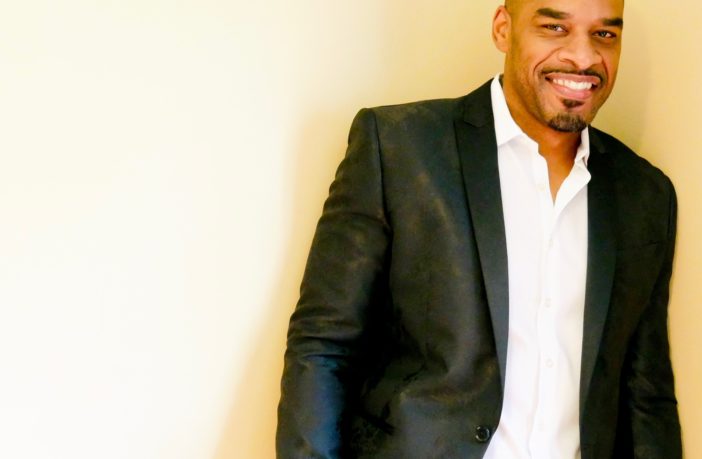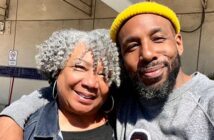By DaQuan Lawrence,
Special to the AFRO
Actor, filmmaker, minister and motivational speaker, Kenyon Glover, has partnered with an international civil society organization, working to help communities in Haiti become self-sufficient.
Through an international fundraising campaign, the group is attempting to raise $2 million via GoFundMe for programming to help communities in Haiti, which are historically underserved and under-resourced. The initiative aims to help residents develop necessary skills to lead their own small and medium enterprises.
Glover is a former basketball player in the National Basketball Association (NBA), and successful actor and filmmaker. Now, he’s using his national and international influence to support Haiti, a nation with a rich history and innovative, resilient and remarkable population.
“Someone brought the initiative and campaign to my attention and I wanted to do whatever I could to help,” Glover told the AFRO. “I learned about the food insecurity, political corruption and how dangerous it is. It’s a war going on out there.”
Located on the island of Hispaniola, Haiti has been riddled with political instability and has made international headlines recently due to challenges in governance, economic development, and political violence. Through it all, the nation has fought hard to maintain its spirit of resistance and resilience in the 21st century.
Founded as the first free Black republic on Jan. 1, 1804, Haiti, formerly known as the French colony of Saint-Domingue, is the first nation in the world to gain its independence through the successful revolt of formerly enslaved people.
Initially led by Toussaint-L’Ouverture, who abolished slavery, previously enslaved individuals fought against France between 1791-1804, when General Jean-Jaques Dessalines declared independence and revived the nation’s native name of ‘Ayiti’.
Born in Monroe, Louisiana and the eldest of three siblings, Glover was far removed from Haiti and it’s culture. Still, the star that has appeared in more than 70 films and television shows saw an opportunity to help— and jumped right into action. Glover said he believes it is important to use his influence to support marginalized populations in the U.S. and abroad.
“Kids are not getting the education they need and there are many resources people don’t have access to such as hospitals, food or furniture. This program is helping Haitians develop skills to build their own businesses, communities, or factories so they don’t have to depend on charitable organizations and foreign aid,” Glover said.
Led by Sharon Savoy of Toronto, Canada, the initiative to raise the money for Haiti is focused on helping communities in Haiti develop the capacity to establish and sustain their own independent small and medium enterprises. Savoy has used her own funds to work with five communities across the nation to develop self-reliance programs to prevent an overreliance on charities for sustenance.
“After traveling to Haiti in the 1980s, I became interested in supporting the population, which was impoverished, but not to the extent that it is now” said Savoy.
In addition to experiencing several unprovoked occupations by the U.S. in the 20th century, Haiti has been impacted by environmental issues such as 2010’s earthquake and 2016 hurricane and is still recovering from the assassination of President Jovenel Moïse by unidentified gunmen in 2021.
Savoy mentioned that after the 2010 earthquake, she began supporting an orphanage but became interested in how the high foreign aid and investment rarely translated into development for the Haitian population.
“When I returned to Haiti, I questioned where all the money that went to foundations had gone. Many charities handle money, and hardly do anything,” said Savoy.
“I started working in communities to provide training and self-reliance skills for young men who were conditioned by charities to beg,” she continued, noting that youth impacted by the political strife and environmental disasters need empathy, support and training.
Savoy, who no longer travels to Haiti out of concern for her safety, shared what she saw first hand in the country.
“The gangs are comprised of orphans who have been in the streets fighting for their lives since 2010. They are tired and trying to survive,” she said.
Since Haiti declared its independence as a sovereign state, the nation has experienced constant economic decline and unyielding political instability, primarily due to imposed political sanctions and purposeful diplomatic isolation by the international community. Many members of the international community believe Haiti is still owed reparations from France.
Although global economic indicators and indices currently list Haiti as the poorest country in the Western Hemisphere, prior to independence, Haiti – then Saint-Domingue – was the richest colony in the world, and the supplier of 75 percent of all the sugar consumed globally.
Despite its significant economic and political challenges, Haiti remains a major trading partner in the global economy. In 2021, more than 85 percent of products exported from Haiti were brought by importers in the U.S., France, Canada, China, Thailand, Spain, the United Kingdom, Jamaica and the Dominican Republic.
Savoy spoke on the ingenuity of the Haitian people, amongst uninterrupted foreign influences.
“We need to stop telling Haitians what they need. Haiti is a very smart country; they just don’t have access to information like us. A 10-year-old orphan boy put electricity in my room,” she said, speaking on the pure talent and potential she witnessed while working in the country.
Though they both lead their own lives, Savoy and Glover have remained committed to helping Haiti.
Glover, a dedicated motivational speaker and minister who is launching a new ministry and writing books, said he believes it is important to prioritize providing support for populations in need.
“We have the platform and the resources so it’s up to people like us to come forward because we are blessed to be able to live a good life—especially in America,” he said. “I think it’s important for everyone to do what they can.”



